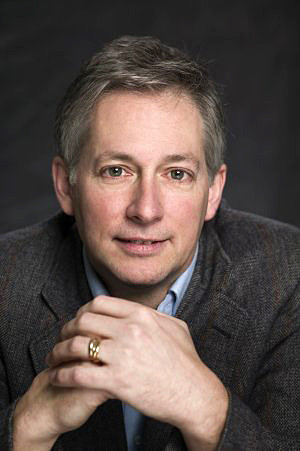Former AEI scientist Edward Seidel appointed director of the US National Science Foundation’s Office of Cyberinfrastructure
Seidel starts his work in Washington today
The National Science Foundation (NSF) has selected former AEI astrophysicist Edward Seidel as its director of the Office of Cyberinfrastructure. This office awards competitive, merit-based grants to researchers who demonstrate cutting-edge information technology that can lead to breakthroughs in science, engineering and other academic disciplines.

Dr. Seidel takes up this position on Sept. 1, 2008.
He had worked for seven years as a professor at the Max Planck Institute for Gravitational Physics (Albert Einstein Institute/AEI) in Potsdam, Germany, where he founded and led numerical relativity and e-science groups. While at Max Planck Institute, he led the EU Astrophysics Network of 10 institutes across Europe, and participated in the EU GridLab project. Most recently he has been Floating Point Systems Professor in the Louisiana State University (LSU) Departments of Physics & Astronomy and Computer Science and Director of the LSU Center for Computation & Technology, or CCT.
"NSF's Office of Cyberinfrastructure is immensely important to all aspects of the science and engineering research the agency funds, and we're excited that a respected leader such as Dr. Seidel is able to join us," said NSF Director Arden L. Bement, Jr.
"It is no surprise that the National Science Foundation sought out a scientist of Ed Seidel's stature for this impressive appointment," said AEI Managing Director Prof Bernard F. Schutz. "He is an excellent scientist and outstanding science manager. Under his leadership, an international team of scientists at the AEI developed software approaches needed to solve Einstein's general relativity equations. Seidel’s remarkable ability to inspire scientists to cooperate have led to long-standing collaborations in Europe and strongly influenced the development of grid environments that efficiently use advanced computing facilities around the world."
NSF is an independent federal agency that supports fundamental research and education across all fields of science and engineering, with an annual budget of $5.92 billion. NSF funds reach all 50 states through grants to more than 1,700 universities and institutions. Each year, NSF receives about 42,000 competitive requests for funding, and makes more than 10,000 new funding awards. NSF also awards more than $400 million in professional and service contracts yearly.
NSF's Office of Cyberinfrastructure coordinates and supports the acquisition, development and provision of state-of-the-art cyberinfrastructure resources, tools and services essential to the conduct of 21st-century science and engineering research and education. The office supports cyberinfrastructure resources, tools and related services such as supercomputers, high-capacity mass-storage systems, system software suites and programming environments, scalable interactive visualization tools, productivity software libraries and tools, large-scale data repositories and digitized scientific data management systems, networks of various reach and granularity and an array of software tools and services that hide the complexities and heterogeneity of contemporary cyberinfrastructure while seeking to provide ubiquitous access and enhanced usability.
Seidel said such technology is crucial to future success in both industry and academia. "I have spent much of my career working to advance cyberinfrastructure, to catalyze and transform research and education through applications of cyberinfrastructure across disciplines," Seidel said. "It is an honor to accept a position that will allow me to address these issues on a national level while continuing my work here at the University."
Seidel's scientific career has focused on solving Albert Einstein's equations of general relativity, pioneering techniques and algorithms especially for simulating black hole collisions and gravitational waves on supercomputers.
LSU recruited Seidel in 2003 from the AEI in Germany to leverage its investment in the Governor's Information Technology Initiative, when he created the CCT. Under his leadership, LSU has emerged as a pacesetter in developing multidisciplinary research programs based on cyberinfrastructure, bringing together areas as diverse as the arts, astrophysics, coastal studies, and computing.
Seidel's awards include the 2006 IEEE Sidney Fernbach Award for innovative work in numerical relativity and high-performance computing, the 2001 Gordon Bell Prize and the 1998 Heinz Billing Prize of the Max Planck Society. He also was named to the Internet 2 Board of Trustees as Discipline Researcher Representative earlier this year and in 2007 became a Fellow of the American Physical Society.
Seidel earned his doctorate from Yale University in relativistic astrophysics. In addition to his work at LSU and the Max-Planck Institute, Seidel was a senior research scientist at the National Center for Supercomputing Applications and associate professor in the Physics Department at the University of Illinois, Urbana-Champaign.








